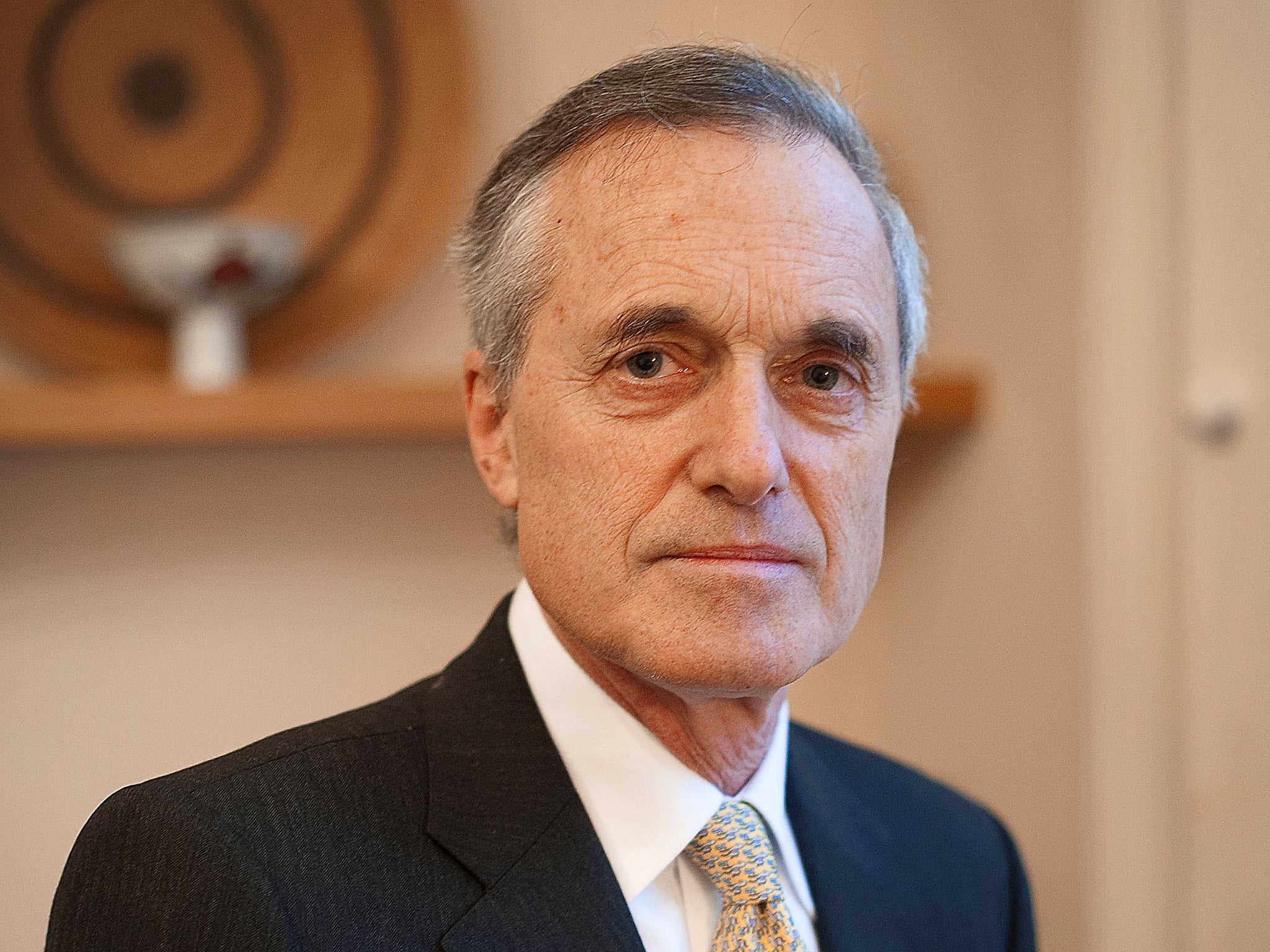EU wins first round of Brexit battle by 'forcing UK out of single market', former adviser warns Theresa May
Sir Andrew Cahn, a former UK single market adviser, says Britain would have preferred to stay in - and predicts a 'bitter divorce' at potential huge economic cost

Your support helps us to tell the story
From reproductive rights to climate change to Big Tech, The Independent is on the ground when the story is developing. Whether it's investigating the financials of Elon Musk's pro-Trump PAC or producing our latest documentary, 'The A Word', which shines a light on the American women fighting for reproductive rights, we know how important it is to parse out the facts from the messaging.
At such a critical moment in US history, we need reporters on the ground. Your donation allows us to keep sending journalists to speak to both sides of the story.
The Independent is trusted by Americans across the entire political spectrum. And unlike many other quality news outlets, we choose not to lock Americans out of our reporting and analysis with paywalls. We believe quality journalism should be available to everyone, paid for by those who can afford it.
Your support makes all the difference.The EU has already won the first round of the Brexit battle by forcing Britain out of the single market, Theresa May has been warned.
Sir Andrew Cahn, a former UK single market adviser, also poured cold water on hopes of a smooth exit, predicting a “bitter divorce” at potential huge economic cost.
The Prime Minister was adopting a “have cake and eat it” strategy – although, unlike Foreign Secretary Boris Johnson, she was too tactful to put it like that.
Sir Andrew pointed out that the Treasury had forecast a 7.5 per cent slump in GDP if Britain crashes out of the EU with no fresh trade deal – falling back on World Trade Organisation tariffs.
On Ms May’s threat to walk away with “no deal” if the EU refuses her demands, he said: “It is quite a risk to take.”
Britain had “some levers” to pull, because it is a large market for EU countries, but he said: “She is playing a weak negotiating hand as well as she can.”
And he added: “The EU side, after all, in a way, have already won the first round of this negotiation because they have forced the UK to say ‘no, we won’t be in the single market’.
“Ideally, we would have stayed in on our own terms.
“Their next line will be to say ‘you sign the exit cheque first and then we will start negotiating’ – that’s a real challenge.”
Michel Barnier, the European Commission chief negotiator, has said the UK must agree the fee for outstanding liabilities of up to £50bn.
Sir Andrew, the former chief executive of UK Trade & Investment (UKTI), agreed it was in the EU’s own interests to reach a new trading agreement, but warned that would take years.
And he said: “It’s a bit like a divorce – it’s a bitter divorce and both sides know that the win-win would be to have an agreement.
“But the reality is, the bitterness is such – the political red lines are such – that, when we go to court, it could end up being lose-lose.”
The warning was in stark contrast to Ms May’s bullish prediction that a trade agreement can be easily reached, because it is in both sides’ interests.
In her speech, she said: “I know there are some voices calling for a punitive deal that punishes Britain and discourages other countries from taking the same path.
“That would be an act of calamitous self-harm for the countries of Europe. And it would not be the act of a friend.”
The Prime Minister insisted “this scenario need never arise”, saying: “I am sure a positive agreement can be reached.”
Sir Andrew, who advised on setting up the single market in the 1980s, also warned of the difficulties of negotiating a trade deal with Donald Trump.
“The implacable truth of trade deal negotiations is that if you want something, you have to pay for it.
“The smaller negotiating partner pays more and gives more than the larger negotiating partner – and it takes a long time, five to 10 years.”
Join our commenting forum
Join thought-provoking conversations, follow other Independent readers and see their replies
Comments